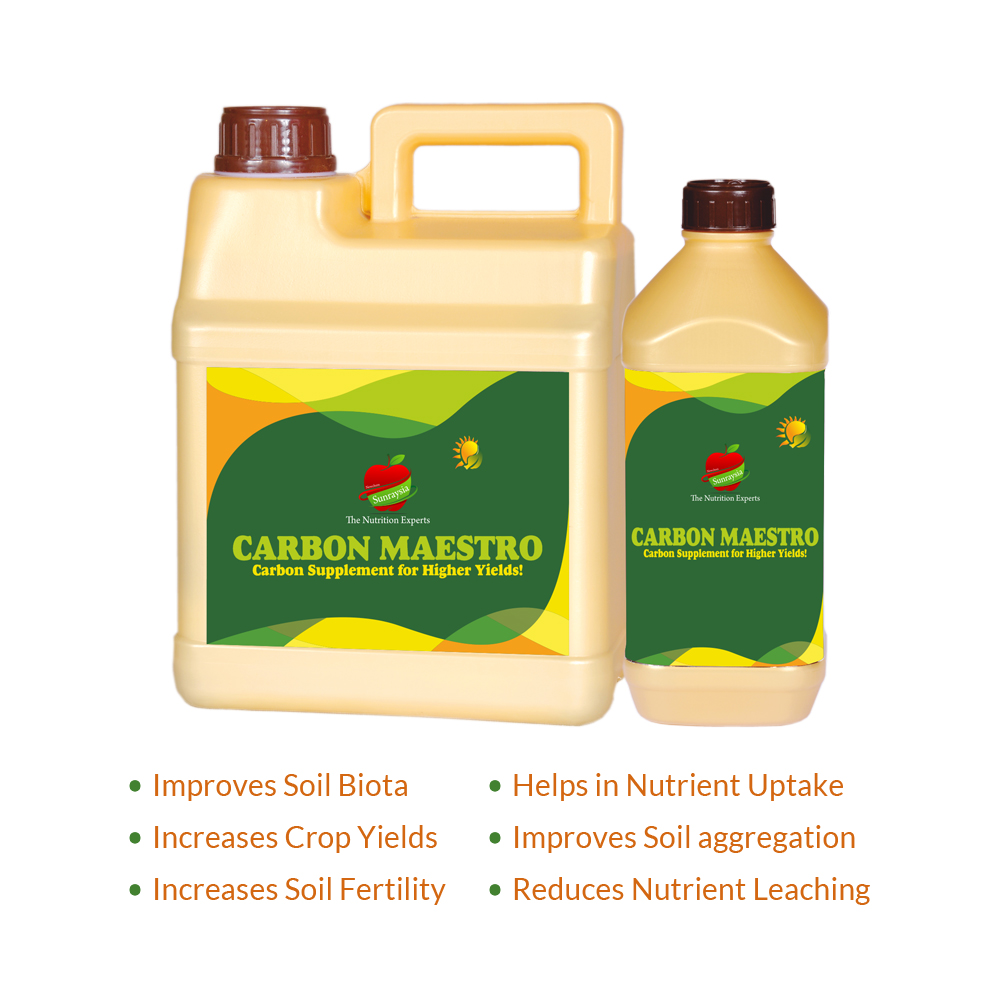
Carbon maestro
Soil carbon has declined significantly in many soils since they were cultivated for cropping – consequently these soils may be less able to supply nutrients to meet plant demand. The production of food affects the amount of carbon in the soil as harvesting plants removes carbon from the soil. High levels of organic carbon help to maintain agricultural production through its positive role in maintaining soil health, raising fertility, reducing erosion and encouraging soil biota. Soils with higher SOC levels are generally more fertile, more productive and easier to manage. Soil organic carbon is the basis of sustainable agriculture. Soil organic carbon is believed to play a crucial role for many soil functions and ecosystem services. All living things are carbon based Carbon atoms bond with other atoms to form chains such as proteins, fats and carbohydrates, which in turn provides other living things with nourishment. Amending soil with organic carbon not only facilitates healthier plant life, but it also drains well, prevents water pollution, is beneficial to useful microbes and insects and eliminates the need for using synthetic fertilizers, which are derived from fossil fuels. Carbon Maestro has high organic carbon content, which have been developed as a food source for plants and beneficial soil micro-organisms and to increase soil carbon levels.
Packaging
1 Litre & 5 Litres
Stage Wise Recommended Application
09
Design Your Product
What's Unique ?
Carbon Maestro rapidly accelerates the microbial activity in soils, provides soil carbon and reduces nutrient lock up. A healthy soil system supports nutrient uptake, assisting root growth and crop disease suppression. Carbon Maestro increases crop yields in high- input commercial agriculture. It also provides Organic NPK and Zinc to the plants that are in readily available form. It is formulated in a liquid concentrate to reduce the handling and storage cost of bulky organic manures.
Benefits
Soil Porosity
Organic Carbon improves soil aggregate and structural stability which, together with porosity, are important for soil aeration and the infiltration of water into soil. Porosity determines the capacity of the soil to retain water and controls transmission of water through the soil. The water stored in soil serves as the source for 90 per cent of the world’s agricultural production.
Biodiversity
Soil Organic Carbon determines the number and activity of soil biota that interact with plant roots. Therefore, the soil microbial community structure is influenced largely by the quality and quantity of Soil Organic Carbon. Biodiversity ensures soil ecosystem functioning; it has a fundamental role in supporting soil functions.
Higher Yields
Soil Organic Carbon plays an equally important role in ensuring food security. This is achieved by enhancing soil productivity and maintaining consistently high yields, particularly by increasing water and nutrient holding capacity and improved soil structure, thus improving plant growth conditions.
CARBON SUPPLEMENT FOR HIGHER YIELDS!
Concentrated Carbon supplement – Replace Bulky Organic Manures
Direction for Use
For Vegetables: use 1 Litres in 200 Litres of water for Foliar application. Use 5 Litres per Acre for Drip irrigation or soil drenching in sufficient amount of water. Repeat application at an interval of 10 to 15 days. For Horticulture Crops: Use 5 Litres / Acre via Drip irrigation/drenching near ROOT Zone. Repeat application at an interval of 7 to 8 days
Storage
Store in a cool and dry place away from direct sunlight and heat.
precautions
Keep away from children.



